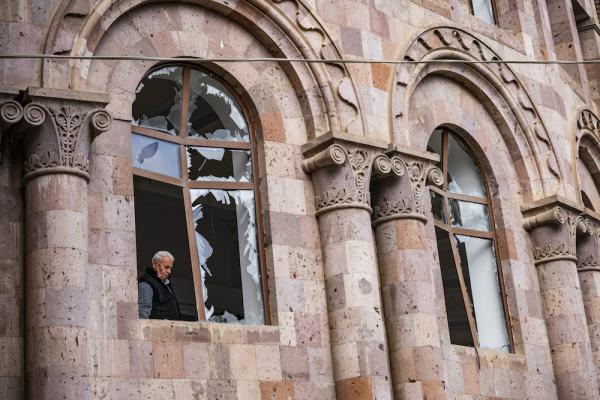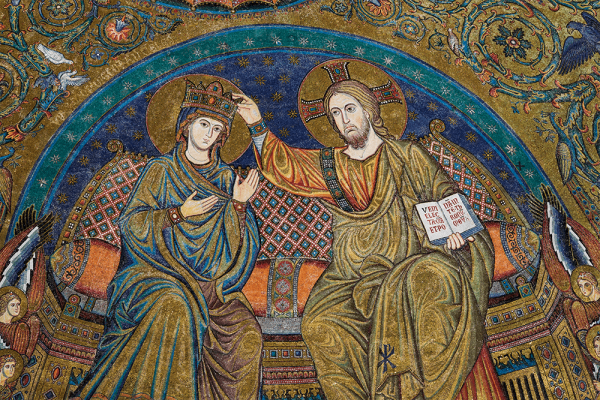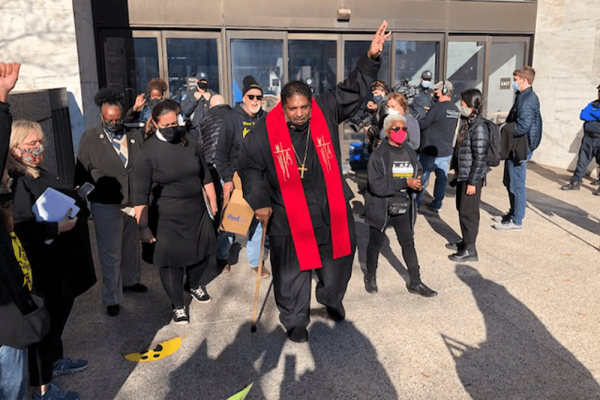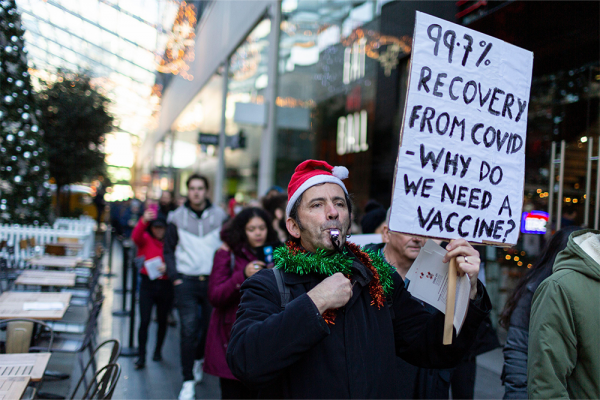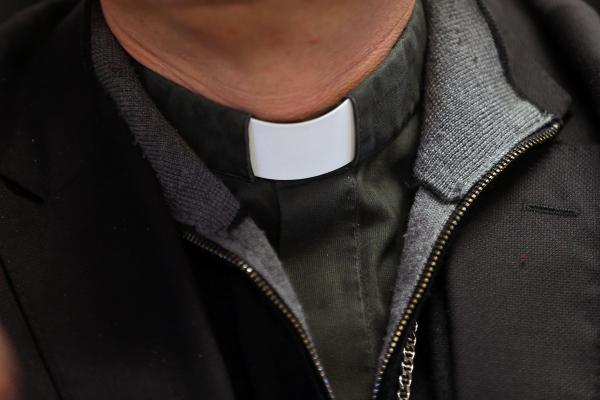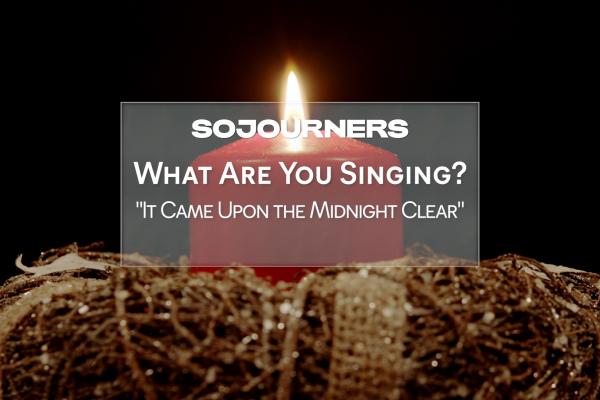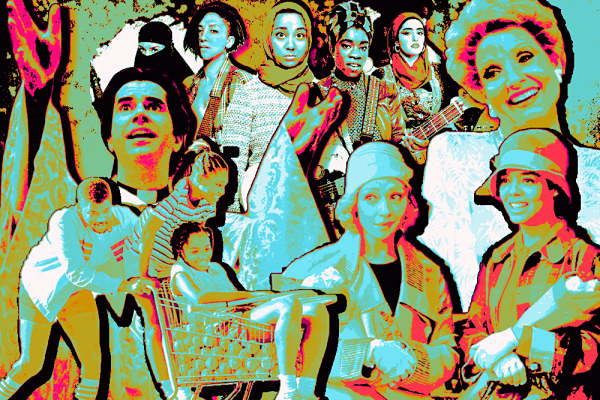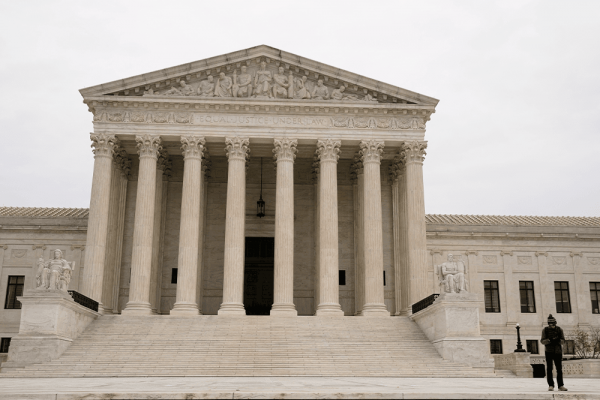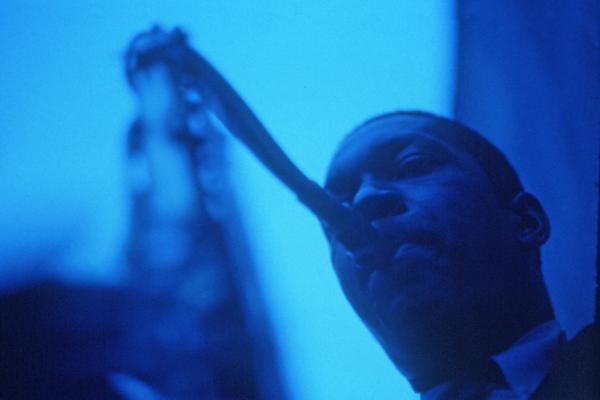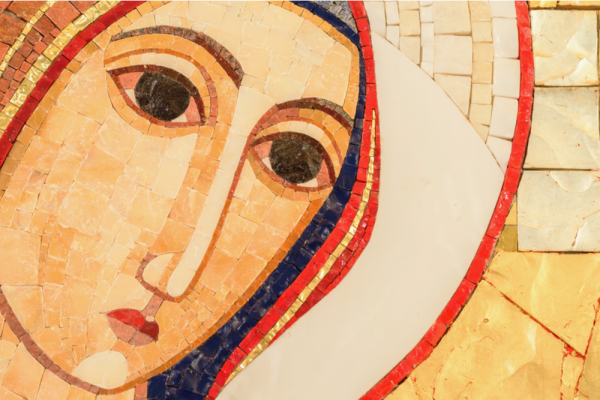“For to us a child is born, to us a son is given,” Isaiah prophesies of the coming Christ child — a child who will be called “Prince of Peace” (Isaiah 9:6). That Prince of Peace would later proclaim in his Sermon on the Mount, “Blessed are the peacemakers, for they shall be called children of God” (Matthew 5:9). Advent calls us to explore how we can pursue peace in our own lives — how we can better become instruments of peace in our communities, nation, and the world. Right now, the prospect for peace feels particularly challenging in light of an ongoing pandemic, rampant violence, and intrastate conflict across the globe.
In a cultural moment where religious deconstruction is being widely discussed, Mary offers us hope. I can only imagine over those nine months the questions, doubt, and frustration Mary felt toward the God who called her to be the mother of the savior of the world. And yet, we can have hope in this: that Mary was favored by God regardless of her doubt.
Revs. William Barber II and Liz Theoharis, co-chairs of the Poor People’s Campaign, held a press conference and protest in the front of the Hart Senate Office Building in Washington, D.C., on Dec. 14 to pressure Sen. Joe Manchin (D-W.Va.) to meet with and hear the concerns and demands from the West Virginian delegates and other members of the campaign.
The pair read from a letter citing the parable of the sheep and the goats in Matthew 25:31-46, calling on Manchin to pledge full support for the Build Back Better plan and the John Lewis Voting Rights Act.
This new survey found a remarkable number of Americans reporting serious family conflict over COVID-19 vaccinations. Fully one in five Americans (19 percent) say that disagreements over COVID-19 vaccinations have caused “major conflict” in their families. Similarly, earlier this fall, PRRI found that 22 percent of Americans reported that their extended family relationships have been “strained to the breaking point” over the issue of getting a COVID-19 vaccination.
Last September, the Catholic Labor Network, a nonprofit dedicated to workers’ rights, trained six priests to perform “card checks” for workers looking to unionize. Since then, the priests have performed card checks for six local union efforts through UNITE HERE, a labor union that represents over 300,000 U.S. and Canadian workers in the hotel, food service, transportation, and other industries.
What rekindles our worship and wonder, causing us to reflect and repent, prompting us to hope and rejoice in this particular season of Advent? Perhaps the same spirit that moved abolitionists, advocates, and allies to pen our favorite holiday hymns can remind us of our reasons to rejoice.
In season two of Ted Lasso, our favorite stubbornly positive coach struggles with anxiety. Unfortunately, the king of talking-it-out doesn’t initially trust talk therapy. In an uncharacteristic display of disrespect, Ted — who doesn’t want to dig up his past traumas — calls the work of the team’s sports psychologist, Dr. Sharon Fieldstone, “bullshit.” Somehow, Fieldstone keeps her cool. “I can’t be your mentor without occasionally being your tormentor,” she tells Ted.
Conservative Supreme Court justices on Wednesday appeared ready to further expand public funding of religiously based entities, indicating sympathy toward a challenge by two Christian families to a Maine tuition assistance program that excludes private schools that promote religious beliefs.
Did you know jazz musician John Coltrane was canonized by the African Orthodox Church in 1982? Coltrane was canonized at the behest of a religious community in San Francisco which founded a church in his name, and St. John Coltrane Church is still alive and well today.
The season of Advent holds a special meaning for me because it reminds me of the power of a mother’s love. While I know “Jesus is the reason for the season,” I cannot help but shift my attention to the woman who brought him into the world — and what she had to endure to birth him.
